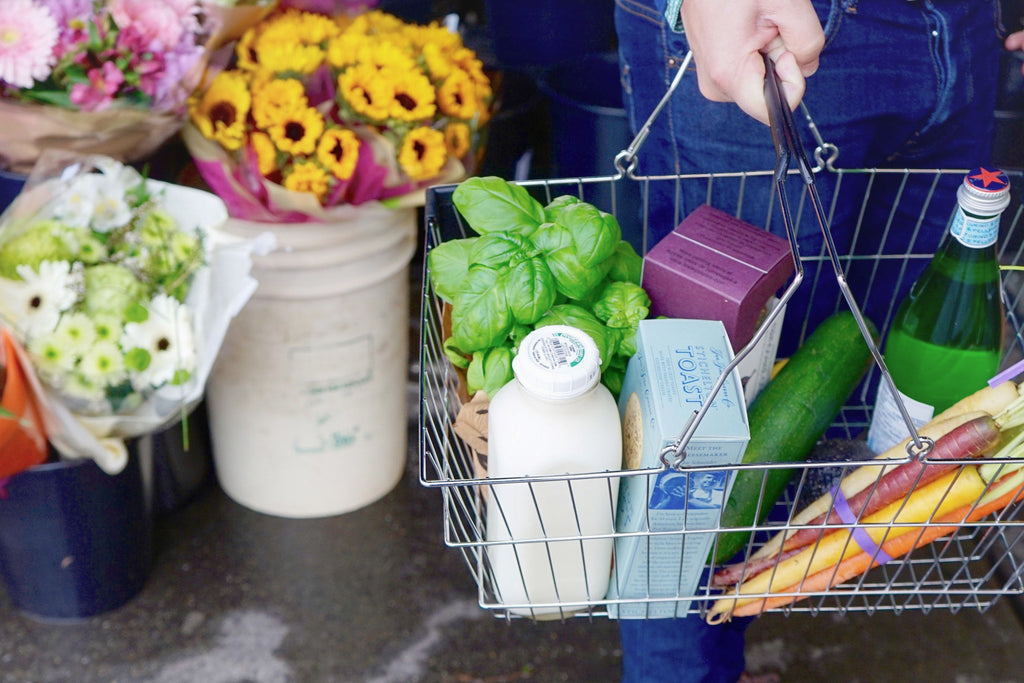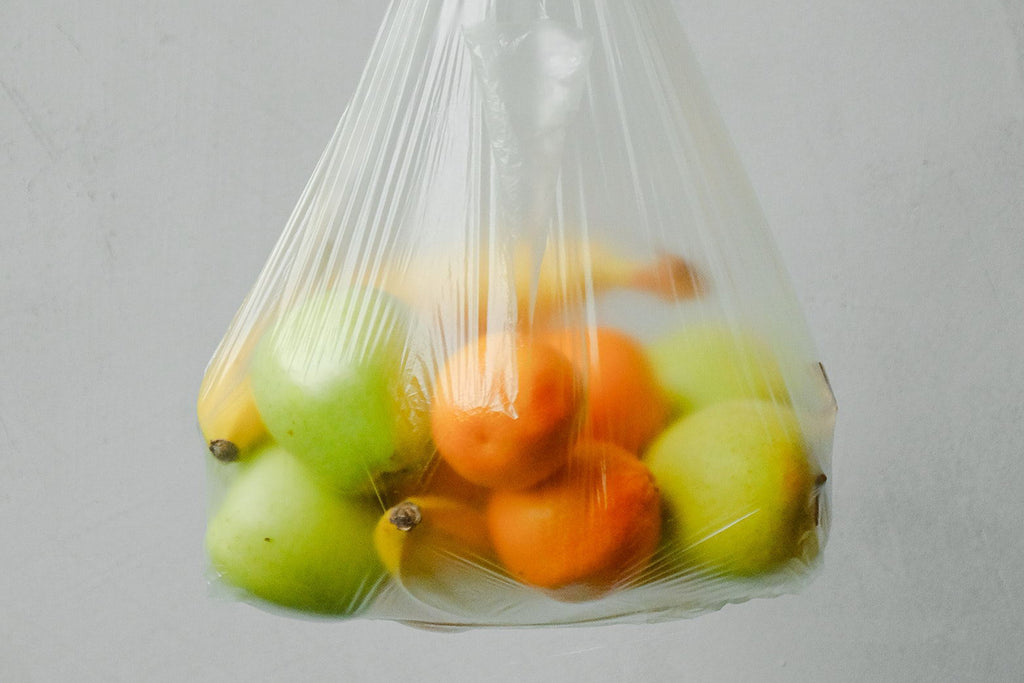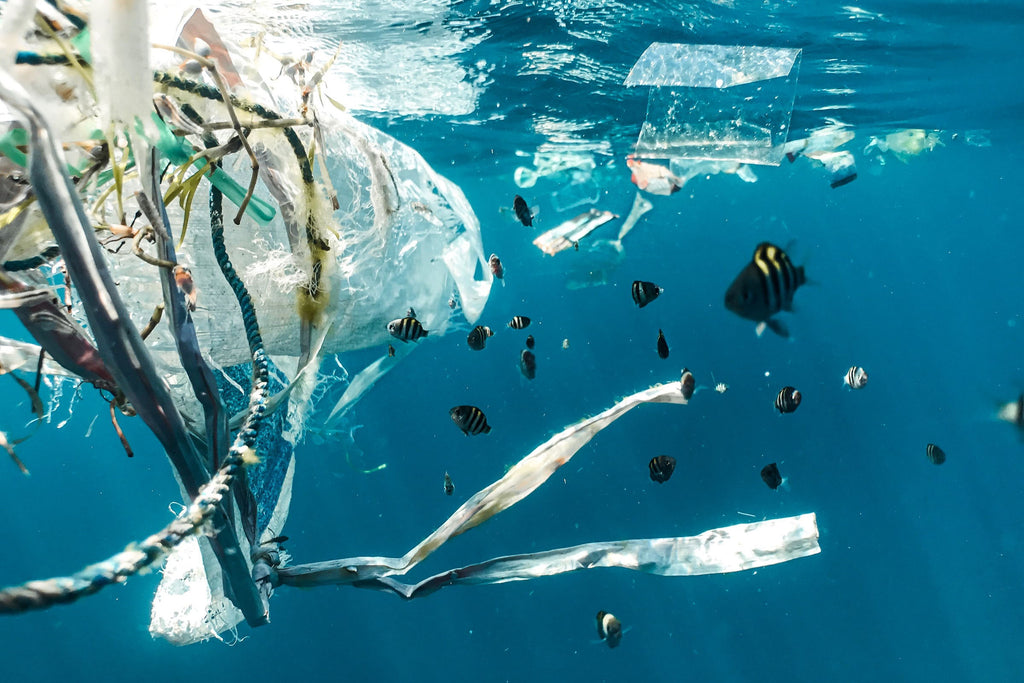When you’re about to leave the grocery store, a commonly asked question in the checkout line is, “Paper or plastic?” what is an ecologically responsible, health-conscious shopper to do, given the issues pulling us in multiple directions--our health, the environment, climate change? Let’s find out.

Although plastic bags were introduced in 1967, they were not extensively utilized in retailers until the 1970s. Most thin plastic shopping bags distributed at cash registers are composed of high-density polyethylene (HDPE), however others are made of low-density polyethylene plastic (LDPE).
The energy included in plastic bags in derived initially from the mining of the raw resources required to manufacture them--natural gas an petroleum--the extraction of which needs significant energy. After then, the raw materials must be processed, which consumes even more energy. When raw ingredients arrive at a processing plant, they are processed and polymerized to generate the building blocks of plastic. These small polyethylene resin granules can be combined with recycled polyethylene chips. While polyethylene may be recycled and reused to manufacture new plastic bags, the majority of plastic bags are only used once or twice before being burnt or dumped in landfills. According to the Wall Street Journal, Americans consume and dispose of 100 billion plastic bags each year, with less than five percent recycled.

Plastic bags are difficult to properly dispose of since they are light and easily blown around. They end up littering sidewalks and trees and washing into the ocean, where they entangle and eat marine life. They are seldom recyclable and can take anything from 20 to 1,000 years to disassemble. Plastics are broken down into smaller and smaller bits over time by the sun and heat, resulting in microplastics less than five millimeters long. These have been discovered in the stomachs of marine creatures, as well as in streams and on beaches all over the world.
In terms of bag selection, Steve Cohen, head of the Earth Institute’s Research Program on Sustainability Policy and Management, stated that it is difficult to anticipate whether plastic, paper, or cloth bags are the best in terms of net energy or carbon, because they all utilize carbon. “But once a product that’s made of fossil fuels, like a plastic bag, hits the waste stream, it’s there forever,” he said. “That’s the biggest problem with the plastic.”

When individuals switch to reusable grocery bags they no longer have a need for disposable plastic bags. This reduced demand means less manufacturing, and adopting reusable grocery bags will help to correct the wrongs caused by single-use plastic bags.
7 Reasons Why You Should Use Reusable Cotton Mesh Bags
1.Conserve Resources
Plastic bags have a far greater environmental footprint than you may think, beginning with the energy necessary to manufacture them. According to Waste Management Northwest, 12 million barrels of oil are utilized to create the plastic bags used in the United States each year. According to SPREP.org, you could drive a car a mile for the same amount of petroleum it takes to make 14 plastic bags.
2.Reduce Pollution
Plastic’s environmental impact may be disastrous. Plastic bags, for example, can take between 15 and 1,000 years to degrade, assuming they make it into a landfill instead of ending up in water such as streams, rivers, or the ocean--or floating around the neighborhood. Only around 1% of the 100 billion plastic shopping bags used by Americans each year are recycled, resulting in a significant amount of plastic pollution each year.
3.Protect Wildlife
According to SPREP.org, more than 100,000 marine animal fatalities occur each year as a result of marine creatures mistaking plastic shopping bags in the water for food. Plastic bags can also become entangled in trees and trap small animals, resulting in even more wildlife fatalities in the ecosystem.4.Avoid Recycling Issues
According to a 2016 Business Insider story, even when people have good intentions and recycle their plastic shopping bags, a lot of recycling machinery can’t manage the task. Bags become entangled on conveyor belts and wheels, blocking machinery; they can be difficult to separate from other recycled items; or they drift to other areas of recycling facility--or even outside of the plant. The easiest way to recycle these bags is to taken them into a plastic bag drop-off site, which can occasionally be available at your local grocery store.5.Save Money
Customers at several establishments in the United States are now charged for plastic bags. While a quarter or dime per bag may not seem like much, consider how quickly it adds up for a consumer who uses five or ten bags every trip to the shop. Not to mention, according to Natural Resources Defense Council supermarket shopping data, the typical American household used roughly 1,500 plastic shopping bags every year. If each bag costs a cent, that’s $75 in shopping bag savings each year!
6.More Firm and Durable
Reusable bags, unlike plastic bags, are less prone to have their handles break off or develop a hole if a box corner or other sharp goods presses into them. Reusable bags make loading and unloading goods easier, and your items are more likely to survive the trip to and from the shop. Reusable bags are less likely to leak, and it is simpler to regulate where reusable bags have gone and what germs they may contain.7.Because You Can
If it’s difficult to fathom life without plastic bags, consider this: according to Waste Management Northwest, plastic grocery bags first appeared in grocery shops in 1977. Generations of people have survived using their own bags to take their products home for thousands of years--and you can, too! When it comes to plastic bags vs. reusable bags, there is no contest. Try this one or this one as an example of a fantastic reusable grocery bag.
